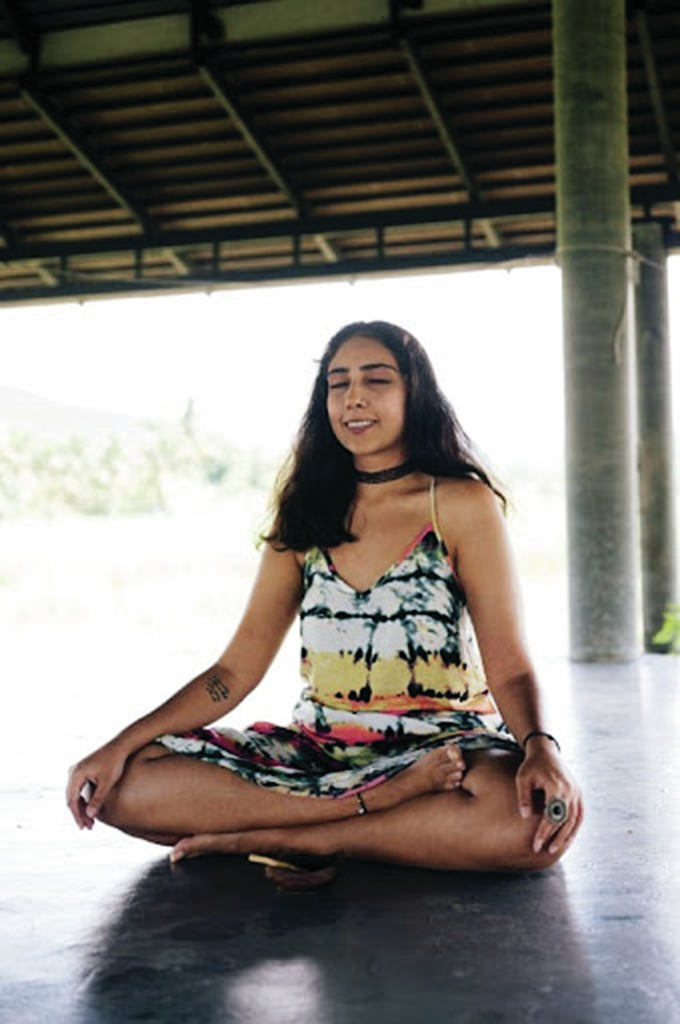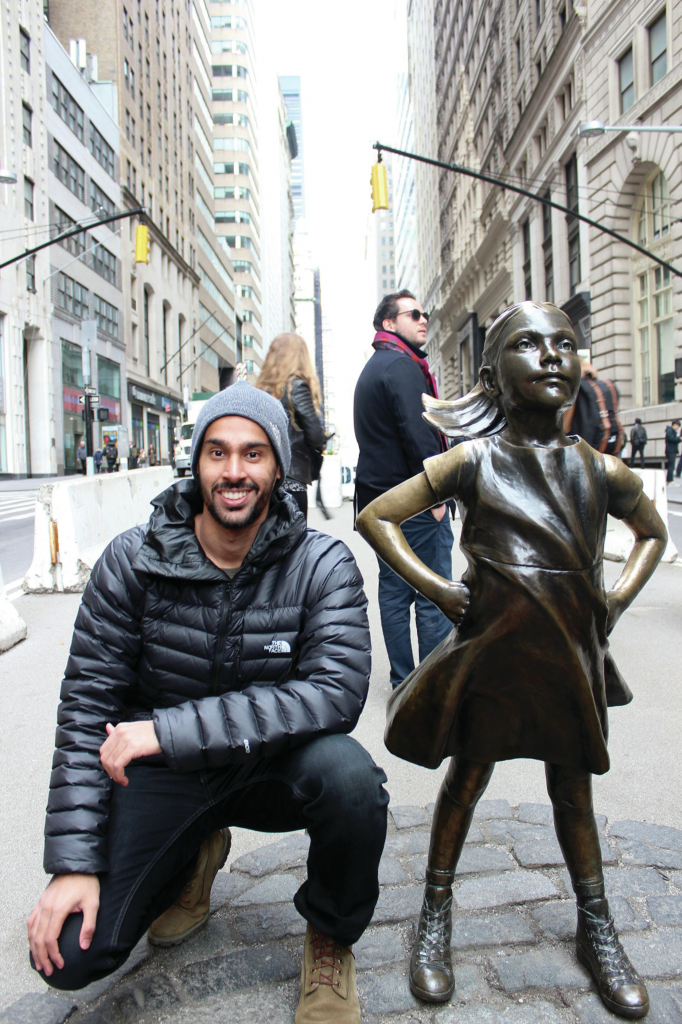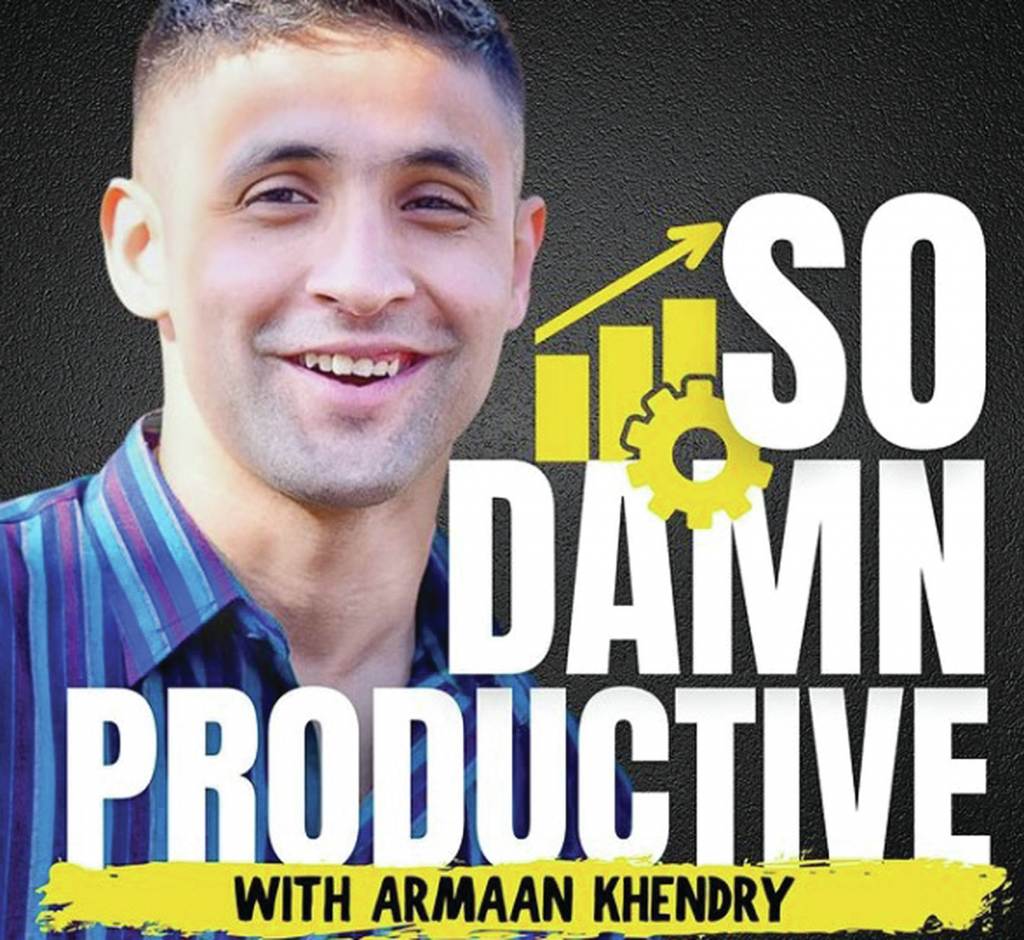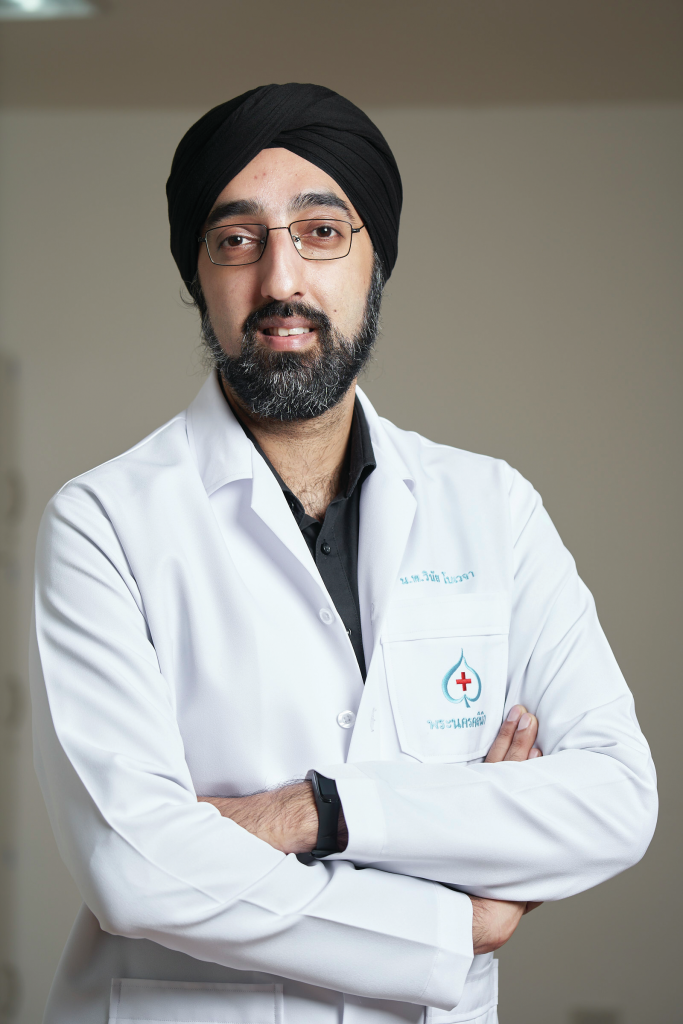We’re all ears.
By Ashima Sethi and Aiden Jewelle Gonzales
Safe to say everyone loves a good story as the act of storytelling is compelling, and can be a fantastic way for listeners to learn and maintain new information. Podcasts, at their core, aim to do the same thing. To tell stories, to interview people who are experts in their field, to facilitate debates on important topics, and to educate listeners in a format that is portable and entertaining. But what exactly is the recipe for a good podcast? We speak to several Thai-Indian hosts about their craft and why you should tune in.
AMORA PASRICHA, KEFILIA PODCAST
Amora, also known as Anmol, is the founder of Kefilia, which hosts wellness retreats across the country and curates spaces for people to connect through workshops and activities related to personal, emotional, and spiritual growth. Each of their retreats centre on a different theme or purpose, and invites specialists and facilitators to deliver their knowledge to diverse groups of people.
What was the inspiration behind launching your podcast?
I’ve always loved listening to different podcasts. Earlier this year, it seemed as if COVID would be sticking around for a while, which limited us from hosting retreats, so I wanted to connect with people through sharing my experiences and lessons through a podcast.
What is it about a podcast as a medium of expression that you appreciate?
That you can listen to them anywhere, whether it’s during a long drive, a workout, or even when we’re doing some cleaning. Podcasts are packed with valuable insights about a variety of different topics. I think they’re a great tool to dive deeper into areas we have interest in.
What are some of the things that make for a good podcast?
I’m not a fan of small talk, so meaningful conversations where I can walk away learning something really excite me. I enjoy open-minded conversations without judgement, only curiosity, so this is something I want to include in Kefilia’s podcasts once we start having guests on board.
With podcasts available covering topics ranging from lifestyle to true crime, what are the most unique aspects of your show?
‘Kefi’ in Kefilia means to have a love for life in Greek, which is the purpose for anything shared through our channel. We touch on how to experience more ‘kefi’ in life, I share experiences that I am going through myself so I can feel connected to the audience in order to remind them that whatever path of life we’re walking on, there are always reasons to be thankful.
What are some of your most memorable episodes?
The first episode I recorded is very close to my heart. I spoke about ‘being ready’ for life, which closely related to my current situation at the time of finally feeling ready to pursue our soul purpose. For anyone who is currently feeling different ideas around them that they want to bring to life, I’d definitely give this one a listen.
DIREK KHANIJOU, CONVERSATIONS WITH DIREK KHANIJOU
A graduate of University College London (UCL) with a degree in Economics and Geography, Direk started his investment portfolio at age 20, and current works in his family textile business in Bangkok. He adopts a long-term, research-driven, and no-nonsense approach to public market investing, which he explores in his podcast.
Tell us about your podcast’s unique niche, and why you chose to talk about it.
I give advice on long-term investment in the equity markets. I enjoy reading about financial history, so most of the examples I give are from the past, as I’m of the firm belief that everything you see in the financial markets today, you will see again. Although each episode is only 5-10 minutes, it takes me a couple of hours to prepare for them, as I want everything I say to be valuable to my listeners.
How did you get into podcasting, and when did you start?
I have been writing investing articles on rbxinvestments.com since 2015, but it wasn’t until late 2020 that I made my first podcast appearance when Vimol Kogar invited me onto his podcast. After that, I did 10 more episodes on his channel before deciding to go about it myself. Since then I have continued to explore podcasting because I’m having fun and it doesn’t take up too much of my time.
What makes podcasts a powerful tool in getting out your message, and what is its value compared to other platforms?
What I love about podcasting is that it is permission-less. Anybody can start one. And unlike video, which demands your full attention, audio complements so many activities! I think more people should give podcasting a try. There are so many benefits: it will improve your communication skills, identify gaps in your knowledge, and even humble you. It’s also a chance for you to showcase your expertise and accelerate your career.
You talk about a lot of topics that can be considered quite niche – how do you ensure that they’re accessible to the average listener?
Niches on the internet are bigger than we think. One of my favourite content creators is Marques Brownlee who does tech reviews that are quite niche. Patrick Collison, co-founder of financial service and software as a service company Stripe, advises us to “make friends over the internet with people who are great at things you’re interested in.” What I’ve found is that having a website/podcast is a magnet for attracting other super interesting people.
What advice would you like to give others who want to reach a wide audience in the same way?
Invest in good audio and don’t be afraid of putting out “lame” content. The first article I wrote sucked. So did my first YouTube video. And that’s okay. It’s part of the process. The good news is that you will get better with each iteration. I now view every piece of article/podcast as a shot on goal. Each piece of content increases the odds that something I have written or said will resonate with someone.
ARMAAN KHENDRY, SO DAMN PRODUCTIVE
Armaan was born in Kerala and raised in Bangkok and claims to hold the record for the number of Foodland pad krapaos consumed by anyone inhistory. In his spare time outside work as a marketer, he podcasts, and plays and watches a ton of football.
What was the impetus for launching your podcast?
Back in 2018, my visa was set to expire in the US and I had to move ‘home’ to India. Now, while I’m from India, I knew absolutely nobody there except for a few family members. And while I love hanging out with family, there was only so much Scrabble a man in his mid-20s could play. With that came the need to meet new people, people who had similar interests and who were excelling at what they were doing. That’s where the podcast came in. It was the best excuse to reach out to people you’d have no business reaching out to if it wasn’t for the allure of a podcast. So basically, I started my podcast to make friends, a little sad but hey, you gotta do what you gotta do!
What are some of the things about podcasts as a medium of expression that you appreciate?
The unique thing about podcasts is that they’re actually a very visual medium. I know that sounds super dumb considering they’re all audio, but hear me out. They’re visual because they allow you to paint a picture in the mind of the listener, similar to the way books do, but podcasts have the added benefit of being able to use music and sound effects to really drive home a point.
What are some tips you can give about hosting a good interview or conversation?
First thing is to never disrupt someone’s flow, even if what they’re saying is garbage. Why? A lot of podcasting is about confidence and confidence is built through getting through a few lines without stumbling. It’s similar to football, if you get a few good touches of the ball early in the game, it’s likely that you’ll have a better 90 minutes. So to disrupt somebody’s flow is a big no-no. I’ve learned that through many awkwardconversations.
Also, as the interviewer, you should create a script and not follow it. For my first 30 or so podcasts, I was a nervous wreck and just read questions off a silly little Google doc. The conversations ended up being really robotic, so I would recommend using the script to structure your research but then going off book. Add in silly jokes here and there, if it falls flat it’s all good, nice guests will always give you a pity laugh.
With so much choice, what makes your podcast so unique?
The unique aspect of my show is the use of narration. It’s not a traditional interview, as we record the interview, cut up the major points to really tell a story, and then the pieces are woven together through narration in post-production. This helps to summarise the main points being discussed.
What are some episodes you’d recommend?
Abhi & Niyu, a power couple who have amassed millions of followers across their social platforms; Zoya Afroz who is Miss India International; web series star Eisha Chopra; Kubbra Sait from Sacred Games; and comedian Cyrus Sahukar.
DR. WINAI BOWEJA, โรคปอดและ ทางเดินหายใจหมอวินัยโบเวจา
Dr. Winai is a pulmonary specialist, and is the head of the Healthy Lung Center, Pulmonary and Pulmonary Critical Care at Phyathai 3 Hospital, and also co-owns the PNC Medicare clinic with his dermatologist wife. He’s passionate about spreading awareness of how to maintain healthy lungs, and his prolific podcast on YouTube, Facebook, Instagram, and LINE, covers topics spanning respiratory diseases, prevention, healthy habits, and self-care.
What motivated you to start a podcast, and as a lung specialist, did the COVID-19 pandemic play a role in its origins?
Approximately three years ago, I had initially started an information base through which people could learn more about how to maintain healthy lungs. The model only shifted to a podcast platform after Thailand’s third COVID wave. I chose to start my podcast as I felt like there were too many people who had inquiries regarding COVID issues, but there was only minimal information available from actual frontline doctors. This led to the idea of explaining my specialist insight to the masses rather than just one-on-one with patients, so that even the underprivileged had access to medical know-how.
What kind of content is best for this kind of platform?
I think unlike other platforms, podcasts are meant for someone really looking for answers or intending to learn about certain topics that they are interested in. It can be a little tough compared to other formats because it requires all aspects of presentation: setting the mood, using the right tone, your flow of speech, and having clear intentions. Your approach and delivery is also key for listeners.
You have almost 300,000 subscribers on YouTube alone. What do you attribute the success of your podcast to?
I’m grateful for the appreciation people have shown my podcast, which I mostly attribute to its uniqueness: it’s a podcast conducted by a subspecialist, which explores real cases, and in which I share my own personal experiences. Despite the medical content, I deliver my message in a non-medical format, and I simplify it enough to create an organic approach to health education.
Moreover, I feel that I can personally relate to the masses. I was raised with limited resources and a difficult financial background, therefore I empathise with, and understand the mindset, lifestyle, and needs of the common man. I aim to have a sincere, professional, and organic approach that connects with human beings, and not just a target market.
What advice would you like to give others who are considering starting their own podcast?
Find a problem that people have, that you are good at solving. Explain your answers to them in a simple, authentic, and professional way. Most importantly, don’t rush to be successful, but focus on quality and value that you can deliver. You just have to make sure you are enjoying what you do, and what you do today will give you potential for tomorrow.

VIMOL KOGAR, WTF SHOW
In the year 2000, Vimol opened his own estate agency. This offered him a lot of latitude to take advantage of his contact base in both Thailand and overseas, as he worked as an intermediary to connect Thai buyers and sellers to assets in SEA and the UK. He firmly believes it is time for investors to look abroad for good value and he and his team can help identify these opportunities.
What was the impetus for launching your podcast?
The youth in Thailand often invest millions of baht into their education. When they return from college, they often take up jobs paying between THB 30,000 and THB 45,000, which seems like a pathetic ROI. After realising that the youth needed help from other youth who progressed quickly in the corporate sector or ventured into a start-up, I quickly identified individuals I thought fit the bill. With the help of Rajan Khanijou, I leased a professional studio and two microphones, and started recording. In Q3 of 2020, the show started with approximately 125 views per episode and grew to a peak of about 3,300 views, where we also appeared on a few charts including iTunes India.
What are some of the advantages of podcasts as a medium of expression?
Podcasts allow you to be a host of your own show with very little investment. It allows for creative independence, a wide bandwidth of input and ideas, and freedom to really move in any direction you want to. We avoid topics like race, religion, politics and government because our main motivation is youth empowerment. Frankly it’s an empowering medium because it allows you to steer the conversation for maximum advantage and benefit to the listener.
What are some of the things that make for a good conversation and how do you ensure this for your podcast?
Asking the right questions is imperative in order to illicit answers that are thought- provoking and brings the listener into the conversation. Sometimes people ask for too many facts and not enough opinions. They ask about IRRs and ROIs but no mission statements, pitfalls of the journey, and future hurdles. Too much focus is put on lessons about success when there are many more lessons in failure. One of my mantras is that I am the ‘King of Failures’ because from failures come very important lessons. I gain more from learning about all sides and I want my listeners to receive a 360 view on any subject.
With podcasts available covering all topics, what makes WTF Show unique?
We focus on youth matters: what they are doing, what motivates them, and what are the pitfalls of starting your own business. Their respective journeys, what advice they’d give to their younger selves, where they see themselves in five years’ time. I believe podcasting is an adventure and I invite you to join me on mine via iTunes, Simplecast, YouTube and Spotify. Season 2 starts November 2022, so stay tuned.










